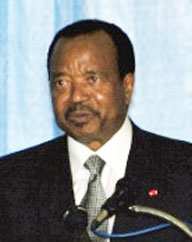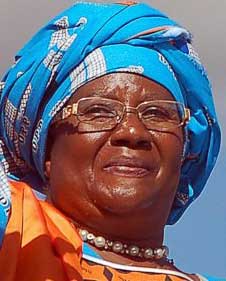What African heads of state won’t say at the UN
Colin Stewart is a 45-year journalism veteran. He is the…
Reposted from the Huffington Post, with permission:
What African Heads of State Won’t Say at the UN General Assembly
By Josh D. Scheinert

The opening of the UN General Assembly is taking place before us. It is a grand opportunity, a chance to challenge one’s own nation and the international community at large to be better, to be more cooperative, to be more just and to be more moral. And it is a chance to lead by example.
Unfortunately, with one particular group of world leaders, in an area where they desperately need a makeover, one will probably not be forthcoming.
Paul Biya, the President of Cameroon will not stand before the General Assembly and proclaim that his nation’s persistent arrest and imprisonment of homosexuals, and those accused of acts as benign as sending “gay text messages” will come to an end. He will not have the courage to stand up before his fellow African heads of state and proclaim that state-sanctioned bigotry and persecution of gays throughout Africa must become a relic of the past.
Likewise, Yoweri Museveni, the President of Uganda, will not have the courage to declare that his nation’s witch-hunts against gays are over.

President Museveni, has stated that he resents the promotion of homosexuality but that he does not support discrimination or persecution of homosexuals. However, as leader of nation where a leading gay activist was murdered, and where a Parliament continues to consider increasing prison sentences for homosexual “offences” from a mere 14 years to life, President Museveni will not have the courage to challenge his fellow African leaders that while they might not favour gay lifestyles, that does not bestow upon them a right to intimidate and imprison their gay citizens.
This is not about an imposition of Western-centric views. Courageous Africans, struggling to live their lives openly and honestly, like those who recently held Uganda’s first gay pride, are not infiltrators, spreading a Western-European order to undermine traditional ways of African life. There are people. No more and no less.
Steven Monjeza and Tiwonge Chimbalanga are two Malawian men who were arrested in December 2009 after holding an engagement ceremony. An international outcry and a concerted effort by UN Secretary-General Ban Ki-moon led to their release in May 2010. In May of this Malawi’s President, Joyce Banda,pledged to overturn her country’s anti-homosexuality laws.

Do Presidents Biya and Museveni consider Malawi and President Banda less African now? Has she capitulated to Western demands amidst an erosion of Malawi’s African culture? Or has President Banda come to a realization that her African colleagues have, for the most part, failed to arrive at. Perhaps African culture, like Western culture, is able to evolve and humanize itself from a narrow and harsh past.
Zimbabwe recently arrested a male couple and charged them under the state’s sodomy laws. Earlier this month a 28-year-old man in Nigeria was sentenced to three months imprisonment for gay sex. And of course there is Operation Bulldozer in The Gambia, currently seeking to eradicate murderers, pedophiles, drug traffickers and of course, homosexuals, from that country.
Are Africans who defend their cultural heritages against Western “cultural imperialism” willing to accept incidents like those above as logical extensions of their own culture and stand by them? Is this a cruelty they are willing to live with? Will they stand not before Western human rights activists but before their fellow Africans and say this is the price they must pay?
One need not look to the distant past to see why African nations have reason to be weary of Western dictates on how to structure societies, and which values are to be protected — especially while we still struggle with our ongoing national experiments with liberalism.
However, it would not be a betrayal of their heritage if Presidents Biya, Musseveni, and others stood up and declared with the same courage and leadership of President Banda that their nations were no longer going to sanction the persecution of their gay citizens.
In Africa they talk about “ubuntu,” the interconnectedness of the self with the community, and the notion that the success of one is tied to the success of the other. It is a beautiful concept that when properly practised can make the world a better and more humane place.
This week certain world leaders have a unique opportunity to do something so unexpected: they can be true leaders, give voices to the voiceless, demonstrating the true value and dignity brought to life by ubuntu.
Related articles
- Malawi President Joyce Banda speech at UN General Assembly:Transcript (nyasatimes.com)
- Paranoia and despair rule Cameroon (chiefnwaco.wordpress.com)
- Articles about Cameroon in the “Erasing 76 Crimes” blog
- Articles about Uganda in the “Erasing 76 Crimes” blog
- Articles about Malawi in the “Erasing 76 Crimes” blog



Do you have advice for LGBT rights activists in Belize?